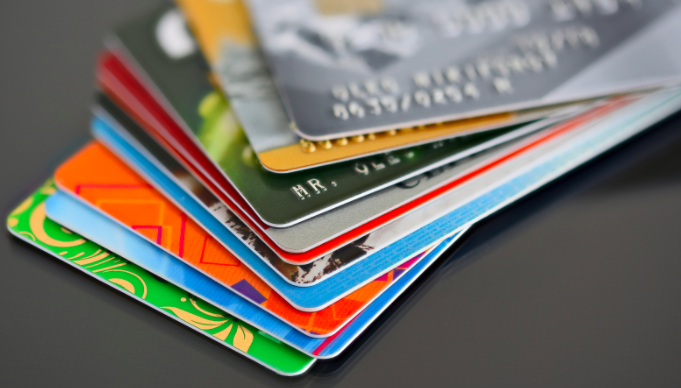Credit cards are an increasingly popular way of making purchases, but they can also be a tool for improving your financial standing and building your credit history. Having a credit card has numerous benefits that make it worthwhile to consider getting one. A credit card can help you better handle your money by giving you more information about how you spend your money and by protecting your purchases in some cases. We’ll talk about why you should have a credit card and how to pick the best one for you in this post. If you have been debating whether or not to get a credit card, keep reading!
Benefits of Credit Cards
Credit cards can be useful for managing your money because they have a number of perks. Having a credit card can help you build and keep your credit score high. Your credit score goes up when you pay your bills on time and keep your amount low. This is shown positively on your credit record. When you use a credit card to buy something online or at some stores, you are also protected in some ways. This can be very helpful when buying big things or going on trips outside of your country. Also, a lot of benefits credit cards offer nice extras like cashback or trip points for daily spending. In addition, some banks may offer debt shift deals with no interest for a short time. Last but not least, it’s always good to have credit available in case of an emergency. But remember to use the card wisely and pay off the amount every month.
In conclusion, it is important to be aware of the risks that come with credit cards, such as high interest rates and building up debt, but when used properly, they can offer many benefits that make them worth considering. Do some study on different card companies and the choices they offer before you apply for one to make sure you get the right one for you.
Finally, if you use your credit card wisely and in the right way, it can be a very helpful tool for your money. It’s easy to see why so many people have one—it could be useful in so many ways!
Advantages of Owning a Credit Card
It can be very helpful to have a credit card. It can help you build and keep up your credit score, protect your purchases, give you nice awards, and give you cash in case of an emergency. A credit card can be very helpful for your finances if you use it wisely and in the right way.
Before registering for one, the first thing you should do is learn about the different providers and the choices they offer. You’ll be more likely to find the right fit this way. If you have a credit card, make sure you pay it off in full every month and keep your amount low so that it looks good on your credit report. Also, a lot of rewards cards give you extras like cashback or trip points for everyday purchases, so check them out if that sounds interesting. Lastly, keep an eye on interest rates and building debt. Only use the card for emergencies or things you need, and make sure you pay off the amount every month.
Finally, if you use your credit card wisely and look for its perks, it can be very helpful for handling your money, so don’t miss this chance!

Building Credit History
These days, it’s important to build credit background. A good credit score shows that you are trustworthy, responsible, and able to pay your bills on time. It can also help you get better loan terms and rates. If you pay your credit card bill on time every month and keep your amount low, you can build your credit history. This will show lenders that you know how to handle your debt well. Also, you should check your credit report often to make sure there aren’t any mistakes or missing information that could hurt your score. Getting other types of loans, like monthly loans from banks or online lenders, may also help you build your credit over time. Finally, you should be careful about how much you spend. Don’t go over the card’s limit, and only buy things that you can pay for each month. If you follow these tips, you will be well on your way to building a strong financial future!
You can build a good credit past and a bright financial future by following these steps and being aware of how you spend your money. Let’s look at what it takes to keep your credit score high now that you know how to build it.
Establishing a Good Credit Score
Getting better loan terms and rates requires that you build up a good credit score. To do this, you’ll need to be smart about how you use credit. This means you should make payments on time, keep your amount low, and not go over the card’s limit. Additionally, make sure to review your credit report periodically to look for errors or discrepancies that could negatively affect your score. Taking advantage of other financial tools such as installment loans from banks or online lenders may also help build your credit over time. Finally, be mindful of spending habits and only make purchases that you can afford to pay off each month. With these tips in mind, you will be well on your way toward establishing a solid foundation for a healthy financial future!
Understanding Your Spending Habits
It’s important to understand your spending habits to make smarter financial decisions. Start by tracking all of your purchases for some time, from buying groceries and clothes to paying bills and eating out. This will help you identify potential areas where you may be overspending. Additionally, consider setting a budget based on your income so that you can prioritize expenditures, such as saving for a rainy day or investing in the stock market. Paying attention to cash flow and being aware of how much debt you have is also essential for good money management. Lastly, it’s important to remember that credit cards should only be used as a form of cash when necessary, and not as an excuse to overspend or buy things you can’t afford. With these tips in mind, understanding your spending habits will become easier and more manageable.
Types of Credit Cards
When it comes to choosing a credit card, it’s important to understand the different types available and how they can affect your financial future. The two main categories are secured and unsecured cards. Unsecured cards are more common, as they do not require any collateral or security deposit to obtain them. Secured cards, on the other hand, require an upfront cash deposit that serves as collateral against potential losses due to nonpayment. It’s also important to consider rewards cards and travel cards that allow you to earn points or miles for each dollar spent. Additionally, there are balance transfer offers that allow you to move existing debts from one card issuer to another with lower interest rates. Finally, some credit card issuers offer special programs for students or those with poor credit histories that may help build their credit scores over time. Ultimately, understanding the different types of credit cards is essential for finding the right one for your needs.
Choosing the right credit card is the key to managing your finances responsibly and making sure you get the most out of your spending. Consider what type of card best suits your needs, and you can be on your way to enjoying all the benefits that come with having a great credit card. But don’t forget – debit cards are still an option too! Tune in next time as we explore the differences between debit cards and credit cards.
Debit Cards vs. Credit Cards
Debit cards and credit cards both offer convenience when it comes to spending, but there are some key differences between the two that you should be aware of. Debit cards are linked directly to your checking account, giving you access to funds already in your possession. Credit cards, on the other hand, allow you to borrow money from a financial institution and pay it back over time with interest.
Debit cards usually do not require a credit check and have no annual fee or minimum payment requirements. However, they often come with limited purchase protection compared to credit card purchases. Credit cards typically offer more purchase protection for items purchased with the card, as well as rewards programs that can reward points or cash back for everyday purchases. Additionally, many credit cards offer balance transfer options that can help reduce debt by transferring balances from higher-interest-rate cards to those with lower rates and fees.
When considering which option is best for you, it’s important to factor in how much you plan on spending each month and if you’ll be able to pay off the balance in full each month. Also, consider what type of purchase protection each card offers and any additional benefits such as rewards points or cashback offered by credit card companies. Ultimately, understanding the differences between debit and credit will help ensure that you make educated decisions about how to use these forms of payment responsibly.
Card Issuers Provide Various Types of Credit Cards.
Credit cards provide a convenient and secure way to make purchases. Different types of credit cards are available from card issuers, each offering different features and benefits such as rewards programs, low-interest rates, cash back, balance transfers, and more. Knowing which type of credit card is best for you will help you save money and maximize your spending power.
First, consider the purpose of the card. Rewards credit cards offer points or cash back on everyday purchases that can be redeemed for valuable rewards such as travel, merchandise, or gift cards. Travel credit cards include additional benefits like no foreign transaction fees or exclusive access to airport lounges. Balance transfer credit cards allow you to move existing balances from other higher-rate accounts to ones with a lower rate and fee structure.
It’s also important to consider the terms associated with each card. Many come with an annual fee while others offer introductory 0% APR periods for a certain period after opening the account. Be sure to read all terms carefully before applying for any type of credit card so you understand your potential costs upfront. Additionally, you should compare offers from multiple card issuers to make sure you’re getting the best deal possible based on your individual needs and spending habits.
Purchase Protection Features & Benefits of Specific Cards
Many credit cards offer purchase protection features that can help protect customers from fraud and theft. These features vary by card but generally allow cardholders to dispute a charge if they don’t receive the products or services they paid for. Some cards also provide extended warranties on eligible items, which may extend the manufacturer’s warranty up to an additional year. Additionally, some cards offer rental car insurance, travel insurance, and other valuable benefits.
When selecting a credit card with purchase protection benefits, it is important to understand the specific details regarding coverage limits and exclusions. For example, some cards may not cover items purchased from certain retailers or used items. Additionally, many of these benefits are secondary to any primary insurance coverage you may already have in place. Be sure to read all terms carefully before applying for any type of credit card so you understand your potential costs upfront and know how each feature works in case you ever need to use it in the future.
Applying for a New Card
Applying for a new kredittkort can be a great way to build or improve your credit history and score. Before you apply, it’s important to do your research and weigh the pros and cons of each card you are considering. Look at the spending habits you currently have to determine which type of card will best suit your needs. Consider whether a rewards credit card, travel credit card, balance transfer credit card, or another type of credit card will offer you the greatest value.
You should also take into account any fees associated with the cards, such as annual fees, late payment fees, and over-limit fees. It is also important to understand the terms related to the interest rate and minimum payment requirements before submitting your application. This can help ensure that you can make all payments on time and within budget. Once approved for a new credit card, it is important to use it responsibly by staying within your assigned credit limit and making all payments on time to maximize its benefits while avoiding costly debt accumulation.
It is up to you to make the most out of your credit by choosing the best card for your needs and using it responsibly. Now, let’s take a look at some key factors to consider before applying for a credit card that can help you make an informed decision.
Factors to Consider Before Applying for a Credit Card
Before applying for a credit card, it is important to consider several factors. First, you should review all fees associated with the card such as annual fees, late payment fees, and over-limit fees. It’s also important to understand the terms related to the interest rate and minimum payment requirements to make sure you can meet them.
You should also think about what type of credit card best suits your needs. For example, do you want a rewards card, travel card, or balance transfer card? Consider your current spending habits and how these cards work before making a decision.
Finally, research different credit card companies and compare their offerings to find the one that will give you the most value for your money. With so many options available on the market, it is essential to take your time when researching and choosing a credit card provider. Taking all these factors into account can help ensure that you make an informed decision when applying for a new credit card.
Researching Different Issuers and Comparing Their Offers
It is important to research different credit card issuers and compare their offers before applying for a new credit card. By doing so, you can ensure that you are getting the best value for your money. Be sure to consider all fees associated with the card such as annual fees, late payment fees, and over-limit fees. Additionally, think about what type of credit card best suits your needs. For example, do you want a rewards card, travel card, or balance transfer card?
When researching different credit cards, pay attention to the details of each offer. Read through their terms and conditions carefully and make sure you understand them before making a decision. Look at consumer reviews online to get an idea of how satisfied other users are with the company’s services. Finally, use comparison sites or services to find out which credit cards have the most competitive terms and interest rates to choose the one that will give you the most value for your money. Taking all these factors into account can help ensure that you make an informed decision when applying for a new credit card.
Understanding the Terms and Conditions of the Card Agreement
Once you have chosen a credit card, it is important to understand the terms and conditions of the card agreement. This document will include information about your credit limit, interest rate, minimum payment, and other fees that may be associated with the card. Make sure you are aware of all of these details so that you can make an informed decision when using your card for purchases. Additionally, pay attention to the due date for payments and any late payment fees that might apply if you miss this deadline.
Be aware of any introductory rates or promotional offers that may be associated with your credit card as they could affect how much interest you are charged over time. Understanding all aspects of the terms and conditions outlined in your card agreement will also help ensure that you use your card responsibly and avoid getting into debt. Finally, read through any extra benefits or protections that may come with the card such as purchase protection or travel insurance so that you can take advantage if necessary.

What To Do After You Receive Your New Card
Once you have received your new credit card, it is important to take the necessary steps to ensure that you use it responsibly. First, make sure you sign the back of the card and activate it according to the directions provided by your issuer. Then review all of the details in your card agreement and understand the terms and conditions associated with its use. Familiarize yourself with the interest rate, minimum payment due each month, and any other fees associated with usage so that you can budget for these expenses.
You should also monitor your credit score regularly to see how using a credit card affects it. Additionally, pay attention to your spending habits and strive to limit yourself to what you can afford so that you don’t overspend or build up too much debt. Finally, be aware of any fraud protection services offered by your issuer and report any suspicious activity on your account immediately. Taking these steps will help ensure that you safely use your credit cards for all of your everyday purchases.
Managing Your Credit Card Account
Managing your credit card account is an important part of maintaining a good credit history. It involves tracking your spending, making payments on time, and understanding the terms and conditions of the card agreement. To manage your credit card account effectively, you should review your statement each month to make sure all charges are accurate. Additionally, stay up to date with payments by setting up automatic deductions from your bank account if offered by your card issuer. It’s also important to keep track of your credit limit and not exceed it as doing so may increase fees or interest rates associated with the card. Finally, pay attention to any promotional offers or rewards programs associated with the card and take advantage of them when possible to maximize their value. Following these tips will help ensure that you get the most out of using your credit cards while maintaining a healthy balance in the long run.
Conclusion
In conclusion, having a credit card can be beneficial for your financial health. While it’s important to manage your account responsibly and stay aware of the terms and conditions of the card agreement, doing so can lead to improved credit scores, increased purchase protection, access to rewards and promotional offers, and more. Ultimately, having a credit card is a great way to build up your credit history over time while also taking advantage of the benefits that come along with them.




